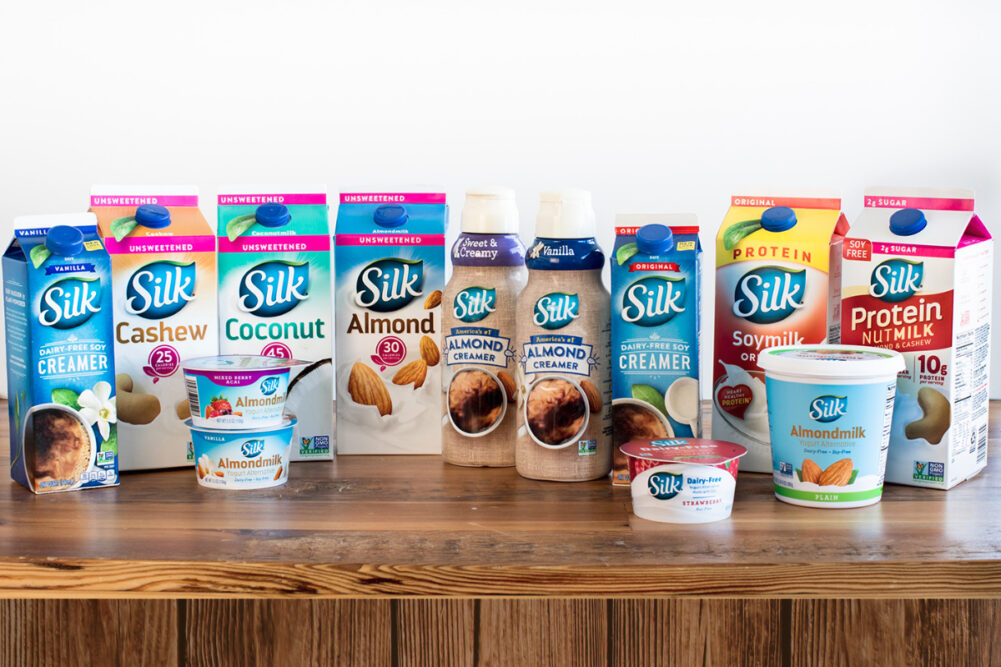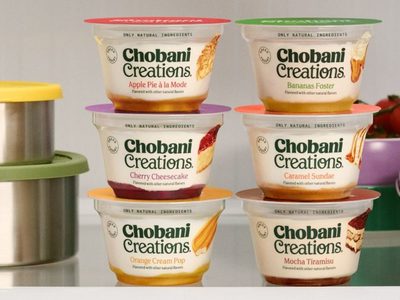PARIS — Short-term effects caused by the coronavirus (COVID-19) pandemic were clear in Danone SA’s financial results for the first quarter ended March 31.
Branded products frequently consumed at home performed well. The Silk brand of plant-based dairy alternatives for the quarter posted a sales growth percentage in the high teens, according to the Paris-based company. COVID-19 had a negative impact on branded products more associated with foodservice. Danone’s Waters business sustained a sales decline of 7% in the quarter.
The long-term effects of COVID-19 are more uncertain, which is why Danone is not providing guidance for the rest of the fiscal year.
“We have lockdowns all over the place now and gradually consumers setting into their new normal for a few weeks, months,” said Emmanuel Faber, chief executive officer, in an April 21 earnings call. “After the pantry loading that we observed in March, we are unable to predict how this lockdown will affect both our ability to supply and the demand for us.”
Danone has offered financial support of €300 million ($326 million), which includes extended payment terms and credit, to farmers, suppliers and smaller customers in its global ecosystems. Employment contracts are secured and wages are guaranteed for all Danone employees worldwide until June 30. Employees working on site during the pandemic will receive bonuses.
Danone companywide reported sales of €6,242 million ($6,779 million) in the first quarter, which was up 1.7% from €6,138 million in the previous year’s first quarter. Sales rose sharply in March, and Danone received boosts from short-term effects like a shift to at-home eating and pantry stocking.
Within the Essential Dairy and Plant-based business, which includes the Silk brand, sales were €3,364 million ($3,653 million), which was up 1.7% from €3,308 million in the previous year’s first quarter. Pantry stocking in Europe and North America was one reason for the sales increase. Danone is refocusing its portfolio on large formats and stock-keeping units with a high-rotation rate. This action is designed to secure the manufacturing and availability on retail shelves of products in the ESP business in Europe and North America.
Mr. Faber said he expects the impact of shelf stocking to disappear in the second quarter. People will save more because of income constraints, which could lead to a slowdown in consumption, he added.
In Danone’s Specialized Nutrition business, first-quarter sales of €1,949 million were up 7% from €1,828 million. Sales in infant nutrition grew at a high single-digit rate. In China, the Aptamil brand gained share as it was supported by positioning on immunity benefits and a shift to e-commerce.
First-quarter sales in Waters were €928 million, down from €1,002 million. The business experienced decreased demand for high-value, small-size formats and impulse channels.
“We have seen away-from-home and on-the-go consumption drop sharply with business in the foodservice sectors significantly impacted,” said Cécile Cabanis, chief financial officer. “This impacts primarily our Waters business, which is the most exposed, with an estimated 40% of sales out-of-home against less than 5% for Essential Dairy and Plant-Based and Specialized Nutrition.”
Ms. Cabanis said in general COVID-19 could have a positive effect on major brands.
“We observe a resurgence of consumer preference in big brands, and in addition, retailers are refocusing their range, whilst there are greater expectation for brands to help address societal change posed by the COVID-19 with safety and trust emerging as popular purchase motivations,” she said. “So this definitely bodes well for the steps we've been taking to build our brand.”




